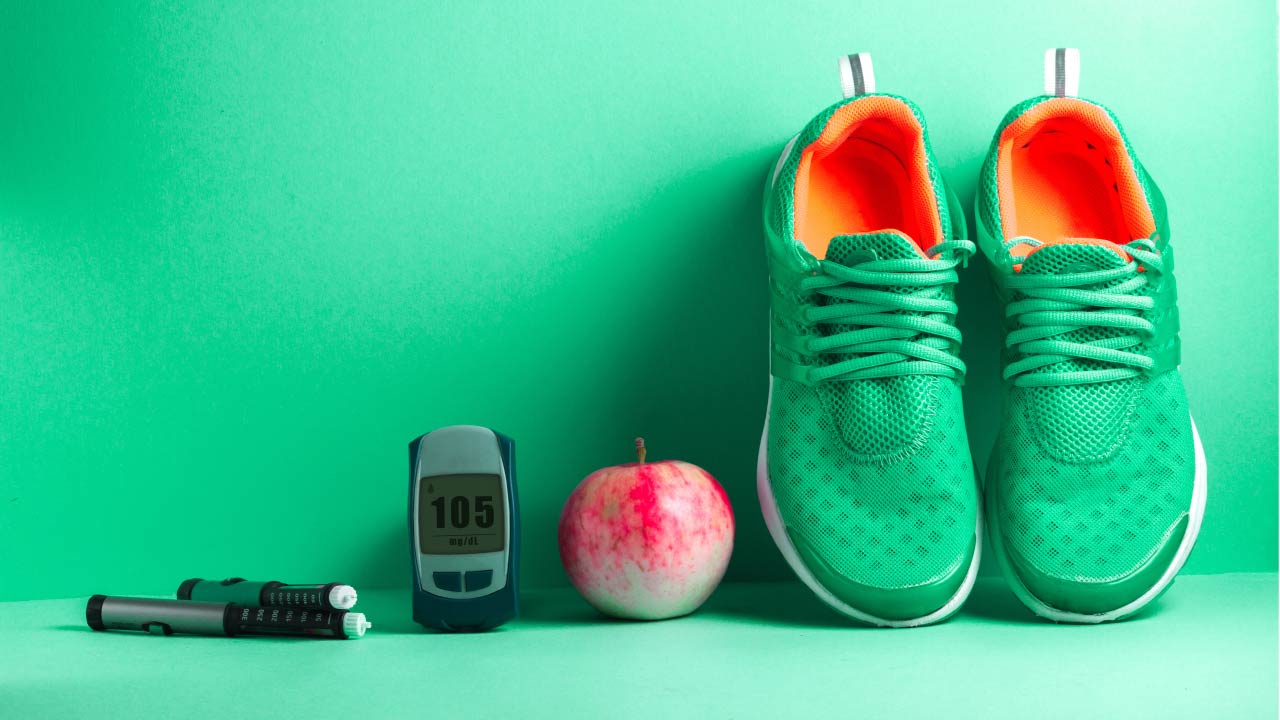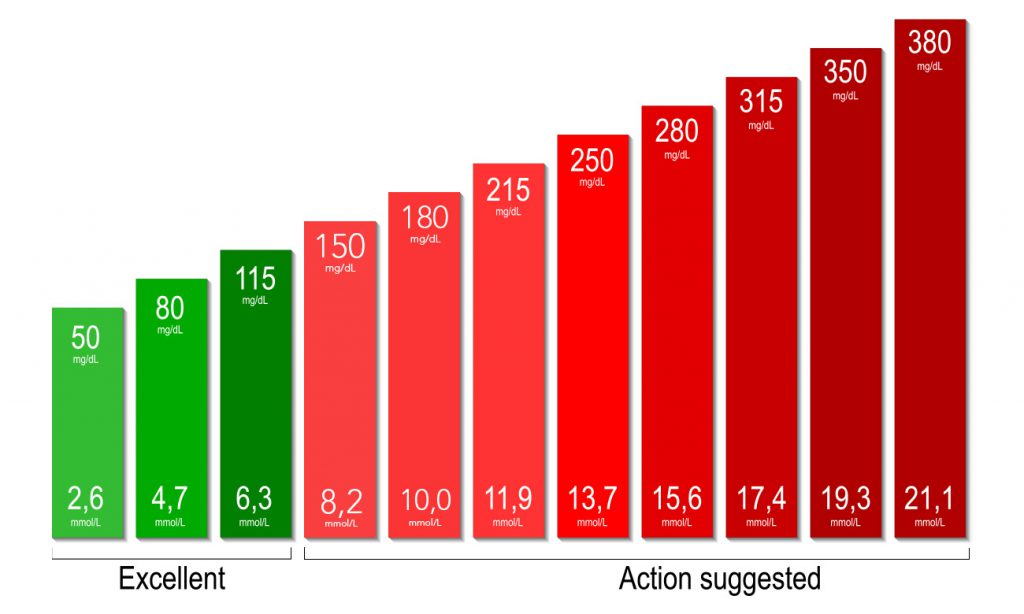
What Your Blood Sugar Levels are Telling You
March 20, 2023
There are nearly 30 million Americans struggling with blood sugar levels, not including individuals who are borderline. This number will only increase in the future.
In This Healthy Insight:
- What is Normal Blood Sugar?
- What are the Risks for Blood Sugar Concerns?
- What Causes Low or High Blood Sugar
- What Can Be Done for Blood Sugar Issues
- What about Blood Sugar Supplements
Blood sugar, also called glucose, is sugar that comes from the food you consume. Blood sugar is carried into every cell in your body and is your body’s main source of energy. Issues occur when blood sugar levels are too high over a long period of time. This can lead to pancreas damage, hardening of blood vessels, circulation issues, vision impairment, and slow wound healing to name just a few.
What is Normal Blood Sugar?

As you see in the chart, blood sugar levels at 115 mg/dL and below are considered normal. The American Diabetes Association suggests individuals with blood sugar issues try to maintain levels of 70 to 130 mg/dL before meals and less than 180 mg/dL after meals. If you have concerns, it is always best to seek advice from your healthcare provider.
What are the Risks for Blood Sugar Concerns?
While there is often no rhyme or reason for who has blood sugar issues and who doesn’t, there are certain risk factors. Weight, inactivity, genetics, family history, race, age, blood pressure issues, and abnormal cholesterol and triglyceride levels can all contribute.
What Causes Low or High Blood Sugar?
Your blood sugar will rise with:
- Consuming too many carbohydrates
- Inactivity – sedentary lifestyle
- Side effects from other medications
- Illness – your body releases hormones to fight and these hormones raise blood sugar levels
- Stress
- Pain – both short- and long-term pain
- Menstruation
- Dehydration
Your blood sugar will fall with:
- Insufficient food, especially carbohydrates
- Alcohol consumption
- Too much insulin medication
- More physical activity than usual
What Can Be Done for Blood Sugar Issues?
If you’re struggling to manage your blood sugar levels, in addition to working with your doctor, there are other strategies you can use.
- Consume plenty of fiber
- Quit smoking
- Eliminate sugar from your diet
- Stay hydrated with water
- Get more physical activity
- Lose weight
- Follow a low carb diet
- Cut portion size
- Reach for whole grain foods
- Skip fad diets
What about Blood Sugar Supplements?
Curcumin, banaba, cinnamon, alpha lipoic acid, chromium, berberine, gymnema sylvestre and fenugreek are some of the most popular ingredients for maintaining healthy blood sugar levels. You’ll soon learn there’s no shortage of blood sugar supplements on the market, some making very bold claims, so choose carefully and after consulting with your health care provider.



